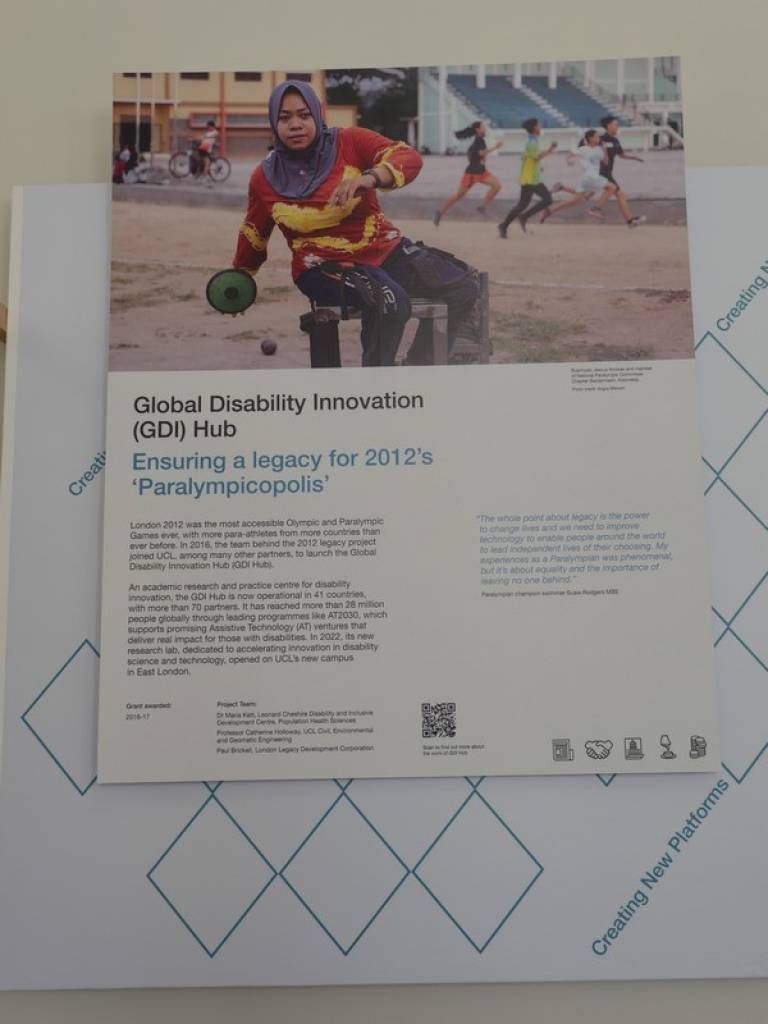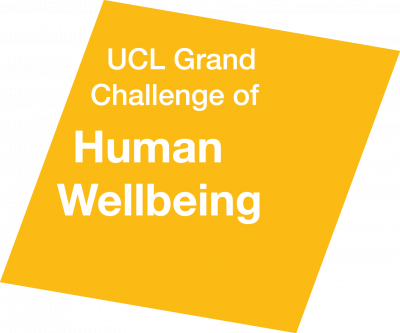Paralympicopolis: A Pop Up Global Disability Innovation Hub
A UCL 2034 grant-funded Grand Challenges Human Wellbeing project.

4 October 2016
London 2012 was the most accessible Olympic and Paralympic Games ever – with more Para athletes from more countries than ever before. Stadiums were full, athletes become famous and new momentum was sparked across the disability justice movement. In 2016 the team behind the 2012 legacy joined UCL, and founding partners London College of Fashion, Loughborough University London and many more to launch Global Disability Innovation Hub (GDI Hub) - an academic research and practice centre driving disability innovation for a fairer world.
It began with way of thinking to shift the agenda towards fairer societies. To disrupt current ideas and practice to seek new possibilities. To bring together the coalitions that others have not. GDI Hub is now operational in 41 countries, with more than 70 partners, and has reached more than 28 million people, sparking transformative outcomes by doing things differently.
GDI Hub’s UCL Academic Research Centre is now the world’s first WHO Collaborating Centre for Assistive Technology. Based out of UCL Engineering, with a new lab space at UCL East on the Queen Elizabeth Olympic Park, GDI Hub is part of the bigger movement for disability justice globally.
But how? New perspectives, bold approaches, an unproven concept… the first step was to test the theory. Grand Challenges enabled that leap. The funding supported GDI Hub’s first activities, bringing together collaborations, engaging communities and building stakeholders. Those early hackathons become the foundation to the GDI Hub of today – building future partnerships and lighting of the spark of possibility. From pop-up challenges on accessible transport for children in Zimbabwe to 3D printing wheelchairs and the navigation of spaces for people with visual impairments, the events attracted hundreds of contributors – and provided a platform to test new ideas.
GDI Hub is now at the forefront of the disability innovation moment globally, translating research and academic excellence into impact on the ground. In 2022 the GDI Hub co-sponsored and contributed 150 papers to WHO-UNICEF Global Report on Assistive Technology (AT), building on the work from its AT2030 programme - the UK’s largest ever aid investment into assistive technology. By testing ‘what works’ to get AT to those that need it most, the AT2030 programme has propelled capacity, innovative AT acceleration and data – developing tools and system change to deliver real impact for disabled people, families and communities.
GDI Hub leads number of global accelerators including UK aid funded Assistive Tech Impact Fund, which has supported the most promising AT ventures in Africa through the combination of catalytic capital with expert-led venture-building, including;
MiracleFeet; a low-cost, nonsurgical solutions for clubfoot
hearX; an innovative diagnostic model for hearing aids so lay-health workers can detect, diagnose and demonstrate in one sitting
Wazi; high quality and affordable prescription eyewear and the first eyewear brand designed and manufactured in Uganda
Koala; an affordable upper limb, soft prosthetic for the Sierra Leone market.
Rewind 10 years to London 2012 and disability innovation was an emerging space. An unknown. A field of opportunity, but a lesser recognised force. With belief, critical funding and the principles of the Grand Challenges and Paralympic Movement, GDI Hub was born.
As the space grows, so does GDI Hub. The forth cohort of Disability, Design and Innovation MSc students are now learning to become the disability innovation pioneers of the future – and yet the journey is just beginning.
According to the Global Report on AT (2022), 2.5 billion people - one in three people - need one or more assistive products, such as wheelchairs, hearing aids, or communication aids and cognition. This figure increases to two thirds of the global population of age 60 years and older. In low- and middle-income countries access levels can be as low as 3% of the need. By 2050 its estimated that 3.4 billion will be without access to these life-changing products. There is much to be done.

The Global Disability Hub project exhibition panel at the Grand Challenges, Grand Impacts exhibition, 2023
 Close
Close


